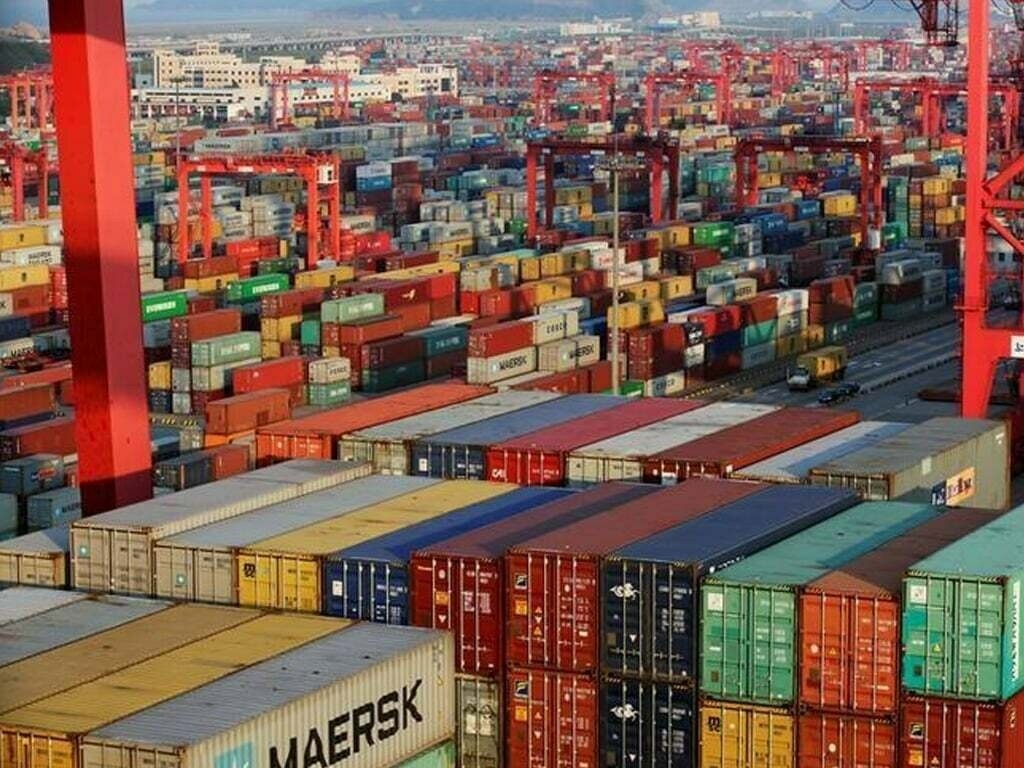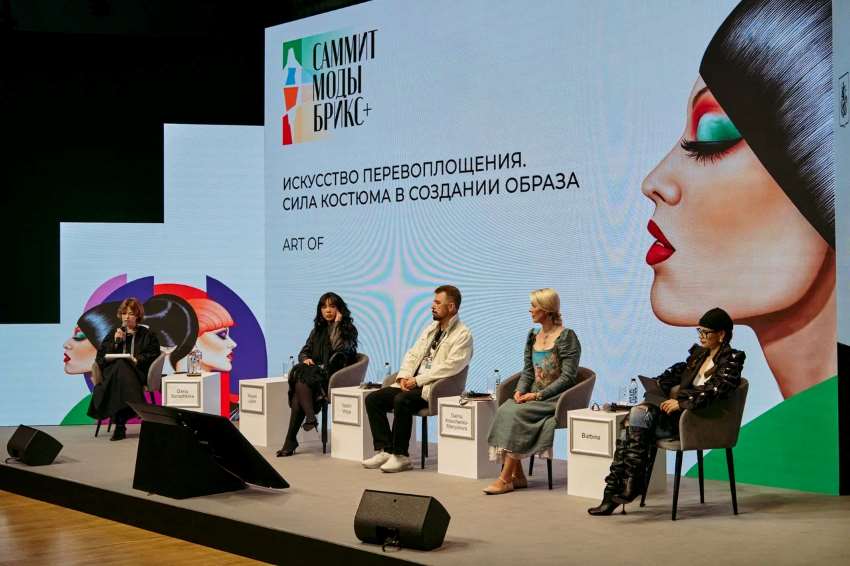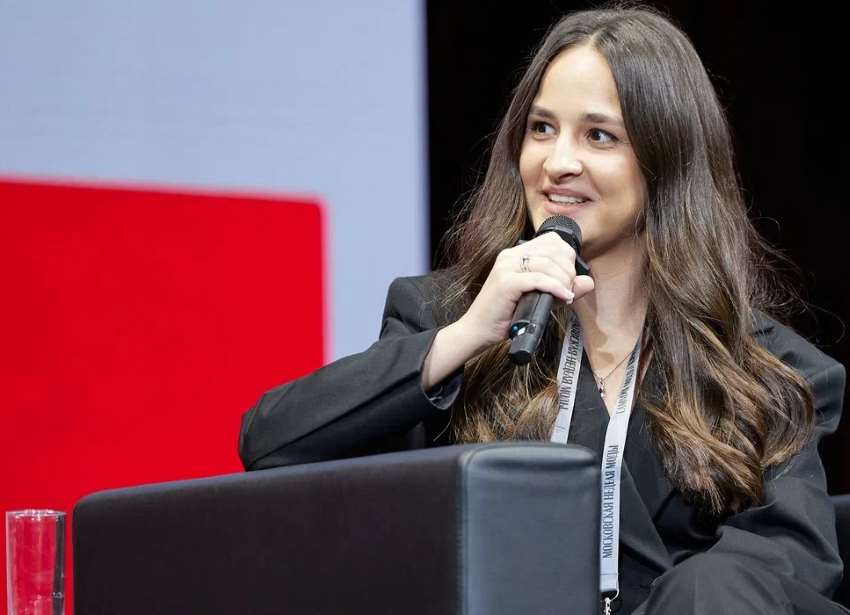FW
Zara has officially opened its first click-and- collect concept store in Londons Westfield shopping centre. The Inditex-owned retail giant has launched a purpose-built space to accommodate shoppers while its flagship store, which is also located on the east London site, is being refurbished to double in size. The concept store will be open until May, when the brands newer, bigger flagship opens once again. The new location is spread in around 2,152 sq. ft, has a dedicated space to collect online purchases, while also stocking a selection of pieces from both menswear and women’s wear.
Customers will be given the choice of receiving their items the same day if ordered before 2 pm. The concept store will also incorporate high-tech features. Sales assistants will hold mobile devices to help customers with sizes, stock and collections and you can pay by card, via Bluetooth, at the register.
One can choose to avoid lines by paying through an app where the Zara and Inditex Group apps both permit this, plus InWallet. There's also a self-service checkout. A virtual styling tool is also on hand in-store. Information screens will be embedded into mirrors, with customers permitted to scan barcodes of items using sci-fi- sounding radio frequency identification technology. Once the item is recognised, the internal system brings up multiple choices for coordinating and combining the piece with other garments and accessories."
This futuristic shopping experience comes as part of Indites game plan to slow down its growth in physical retail and instead focus its efforts on omni- channels. Chairman and CEO of Inditex, Pablo Isla said in a brand statement that this marks “another milestone in our strategy of integrating our stores with the online world which represents an important part of our identity.”
Bangladesh government has extended by one year the tenure of current Board of Directors of the Bangladesh Garment Manufacturers and Exporters Association (BGMEA).BGMEA Vice-President Mohammed Nasir confirmed the extension. As per the schedule, BGMEA election board on December 18 last year, the biennial election for the posts of its 35 directors was supposed to be held on March 7.The two panels of apparel makers – Sommilito Parishad and Forum – had reached a consensus to hold election for the new leadership.
Post a meeting with stakeholders and former BGMEA presidents last week, the government decided to extend the board’s term by a year considering the present condition of the apparel industry and challenges they faced, including completion of safety inspection and other issues, Nasir said.A Commerce Ministry official said BGMEA wrote to the government requesting an extension and changes in the memorandum of the association in line with the latest amendment of Trade Organisations Rules.The board had been given a six month extension, however, that expired on September 21 last year.
The Woolmark Company and leading sports brand Adidas have teamed up to launch a design competition focusing on the development of innovative, forward-thinking products for the performance industry. The Woolmark Performance Challenge is a new annual competition for tertiary students in Europe and North America and is set to kick-start the career of the eventual winner.
The joint partners note the competition provides an amazing opportunity for tertiary students to develop innovative new product applications within the sports and performance market, using the science and performance benefits of Australian merino wool. Performance apparel is one of the fastest growing sectors in the international textile industry, growth that can be attributed to an emergence of new technologies, new sporting trends and a shift in people’s attitude towards health and fitness.
In addition, consumers are becoming more aware of the impact their purchasing decisions have on the planet and are demanding natural alternatives for their product and apparel needs. Adidas’ Senior Design Director Tillmann Studrucker explains, “At Adidas we are driven by a constant desire for innovation and its belief that anybody can and should be a creator. This unique collaboration with The Woolmark Company gives young creative students the chance to help shape the future of sport and sports culture. I am looking forward to a lot of creative designs that are considering sustainability with material innovation ideas that blend performance and style, past and future.”
Woolmark says its piece, “Taking advantage of the explosive growth in demand for sportswear and activewear, wool’s position as a technical fibre allows it to meet increasingly demanding consumer needs for comfort and performance. Wool is recognised by leading sportswear brands and manufacturers for its technical benefits including resistance to odour, superb breathability and moisture management capabilities.”
Applied DNA Sciences has announced it is collaborating with Cotton USA, a trademark of Cotton Council International (CCI), to display cotton traceability technology and What's New in Cotton — as part of the Cotton Cares collection at international fashion events this year. The Cotton Cares Collection is designed to introduce designers, established labels and the apparel industry to the process by which a brand can build a certified and traceable collection, that will provide answers to questions about purity, authenticity and ethical standards.
Applied's Traceability along with Signature T technology provides cotton traceability from the farm to the supply chain, through to store shelves. Forensic level origination is also tracked based on blockchain-enabled systems developed to verify SigNature T tagged fibre, yarn, fabric and finished goods. James A Hayward, President and CEO of Applied DNA Sciences says, "Being able to demonstrate that this tag, test and track technology is easily incorporated into the apparel manufacturing process is a good
first step to engaging product designers. The SigNature T molecular tag is safe and binds to cotton fibre in the first processing stage, at the gin. In the US, SigNature T has been used to tag over 150 million lbs. of U.S grown cotton since 2014 and is an easy solution to adapt resulting in 100 per cent product authenticity - a trait being demanded by more consumers around the globe. Brands and manufacturers now have a means to know exactly where their cotton comes from at any stage of the supply chain through SigNature T tagging, testing and tracking, he added.
With just a few days to go for the Union Budget-2018, the Federation of Surat Textile Traders Association (FOSTTA) has sought extension of the e-way bill's implementation in the textile industry by six months and simplification GST as well as a range of other demands submitted to Union finance minister Arun Jaitley. FOSTTA says, the Surat's man-made fabric (MMF) sector was manufacturing 4 crore metre of fabric per day, which has been reduced to 1.7 crore metre post GST. The daily turnover of 65,000 textile traders, which was estimated to Rs 110 crore per day, has been reduced to just Rs 45 crore post GST.
Textile traders urged the finance minister to form a special committee on MMF textile sector to study the impact of GST and suggest long-term solutions. The traders demanded that central government set up a garment manufacturing hub in the city to help textile traders directly supply their fabrics to manufacturing units.
The central government should increase loan amount from Mudra Bank from Rs 10 lakh to Rs 25 lakh to support the 'Make In India' campaign and permit small traders to avail of benefits. Textile traders are facing numerous issues in submitting KYC details to the banks under the new law of the Reserve Bank of India. A majority of textile traders, including small traders, do not have permanent houses in the city and are unable to submit their personal details.
Century Textiles & Industries (CTIL) reported strong net sales as it grew strongly by 17.6 per cent yoy to Rs2,069.5cr (net of excise duty for the base quarter). EBITDA reported 39.8 per cent yoy rise to Rs333.8cr. Led by cost saving in raw material, employee and other expenses, as a per cent of net sales, EBITDA margin expanded by 257bps yoy to 16.1 per cent. Further, with lower interest cost coupled with margin expansion, post adjusting for losses of discontinued operations (PAT) spiralled up significantly to Rs89.9cr as against Rs17.2cr in Q3FY17.
The textile segment reported 5.1 per cent yoy growth in revenue at Rs385.2cr with EBIT margin of 11.2 per cent (65bps yoy contraction). The quarterly numbers were healthy post subdued performance of H1FY18. During the quarter, the company entered into an agreement with Grasim Industries granting it the right to manage and operate the company's viscous filament yarn business for 15 years, commencing February, 2018 on a mutually agreed date.
Grasim will be paying Rs 600 cr upfront royalty along with a Rs200cr refundable security deposit (repayable after 15 years). Additionally, CTIL incorporated a wholly owned subsidiary, Birla Estates, to focus on the real estate business.
Post repeated calls from various industry groups, the government announced the enhancement of duty drawback rates to be effective from January 25, 2018. The enhancement of rates for 102 tariff items will definitely bring relief to all stakeholders. On the flip side, representatives from the textile industry have noted their "disappointment" with the government for ignoring the calls of an industry which has been "one of the most impacted by GST".
Confederation of Indian Textile Industry (CITI), president, Sanjay K Jain is unhappy with the notification, "The notification just mentions wool items which is a very insignificant part of the textile industry. There is nothing on textiles. The textile industry is pretty disappointed that demands for increasing drawback or RoSL for yarn fabric and garments was not considered, despite the industry being in a very difficult position post-GST."
The local textile industry is seeing the country increasingly getting flooded by imported material which is a serious concern for the SMEs operating in this sector. The national president of the Textile Association, Arvind Sinha decries, "Export incentives have come down and at the same time import barriers have gone down which has resulted in imports going up by 20 per cent already, and in some cases like in Bangladesh garments have increased by 50 per cent. Exports are coming down every month."
A decline of 3 per cent in CAGR in textiles and apparels in the month of December last year as against the corresponding period in 2016 has been reported. Exports came to $2996 million during December 2017 when compared to $3075 million in December 2016. Jain echoed the concerns of the industry, "The effective GST duty on fabric is 5 per cent officially, but because of the non-refund of excess input tax credit under inverted duty structure, it actually adds up to 8-9 per cent.
This is making us lose to imports because they only pay 5 per cent IGST." Sinha also shares the same view, "We need genuine duty exemption in exports because money is getting stuck for manufacturers."
Over 100 international players in the denim supply chain, including Candiani, Orta, Royo, Blue Diamond, Atlantic Mills, Calik, Santanderina, Unitin, Soorty and Arvind are set to converge in Munich, Germany to attend Bluezone on January 30 and 31. The denim and technology show attracts innovators and creative people worldwide looking at industry best practices and new fabrication. Here manufacturers’ and trim suppliers will attempt to find solutions to key issues plaguing the denim industry, including sustainability and performance.
Ondisplay will be Italian denim mill Candiani bows Re-Gen, a collection of market-ready biodegradable denim made with no raw denim. Dyed with Kitotex — organic and biodegradable material taken from the exoskeleton of crustaceans— and Candiani’s Indigo Juice technology, Re-Gen uses up to 50 per cent Refibra™ branded lyocell fibers and 50 per cent recycled cotton warp/weft. Turkteks will showcase leather patches with sustainable finishes. The trims are a key element of big brands’ wanting to emphasise their sustainable to consumers.
Ortafrom Turkey will display its next generation of denim Exoart where they combine new technology with ecological processes and craftsmanship while its country counterpart Calik Denim will inform customers about its latest innovations, Smart Stretch, for advanced shaping and Fly Jean will offers designers lightness and flexibility with a super soft touch and shape retention. Light and airy is essential for the Spring’/Summer ’19 season. Unitin is expected to demonstrate its most lightweight and softest shirting fabrics with TENCEL™ lyocell fibers, while Tavex focuses on open weaves with a soft touch specially manufactured using new tri-blend technology. Kassim’s nationalistic fervour is set to display their ‘Made in Germany’ collection claiming ‘the next generation of premium sustainability’.
DesignStudio SSAT in collaboration with BMW Motorrad and Navenna Denim presents a capsule collection that uses Dyneema fabrics that fuses details and innovative design with denim that supports a biker’s lifestyle. Also on offer will be Bluezone’s Denim Club, a centre for workshops, discussions and lectures, including the development of fitted jeans, the future of the heritage trend, the automation of finishing processes and sustainability in practice. On January 30, there will be an exclusive screening of the Riverblue documentary in which Lenzing Global Marketing Denim Director Tricia Carey take part in panel discussion with industry leaders including designer Adriano Goldschmied, called, ‘Riverblue: Can Fashion Save the Planet?’ The panel will examine the effects the apparel industry has on the world’s rivers.
The annual Economic Survey 2017-18 was released today. Reacting to it HKL Magu, Chairman, AEPC said, “Economic Survey has predicted 7-7.5 per cent growth in 2018-19 with exports and private investment set to rebound. The survey suggests an improvement in demand and investment, which should augur well for the economy as a whole, and the apparel sector specifically. The survey has rightfully pointed out that the Rs 6000 crores package announced in June2016 has addressed the constraints faced by apparel firms to a large extent and the Rebate of State Levies (ROSL) has increased exports of ready- made garments (man-made fibers) by about 16 per cent.” He went on to add that due delays in refund of state levies (RoSL) and IGST, the full benefit of the package has yet been realised. If the GST and RoSl refunds issues are smoothened, the industry can aim at achieving double digit growth.
Italian textile firm Aquafil has a ‘multi-year’ partnership deal with bioengineering company Genomatica to produce a sustainable, plant-based ingredient the companies say will play a key role in reducing the environmental impacts from the nylon supply chain. The collaboration aims to develop a "commercially advantageous" bioprocess to manufacture caprolactam - a key compound in the production of nylon - using plant-based, renewable ingredients as against crude oil derived materials traditionally used in the nylon production.
The intention is the new approach will also help to cut production costs, as well as its environmental impact. Currently, petroleum-based caprolactam is widely used in a variety of nylon-based products, including clothing and carpets. The material has a global market of more than five million tons per year.
Switching to more sustainable forms of the compound will go a long way to create more environmentally friendly nylon products, the companies claim. The company explained utilising the GENO CPL process developed by Genomatica should not require any adjustments to machinery or processes in the existing nylon supply chain, adding that it can be applied to both larger and smaller scale production plants.
Genomatica’s CEO Christophe Schilling explains, the bio-based product's performance is fully comparable" with nylon derived from crude oil. This is another example of Genomatica applying the power of biology to rethink how widely-used chemicals can be made a better way," he said.
The two companies are also requesting a wider collaboration and encouraging other leaders in the sector such as chemical producers, agriculture firms and clothing brands to join its sustainable nylon programme. Giulio Bonazzi, chairman and CEO of Aquafil, said he wanted more consumers and manufacturers to play an active role in developing a more circular economy.











